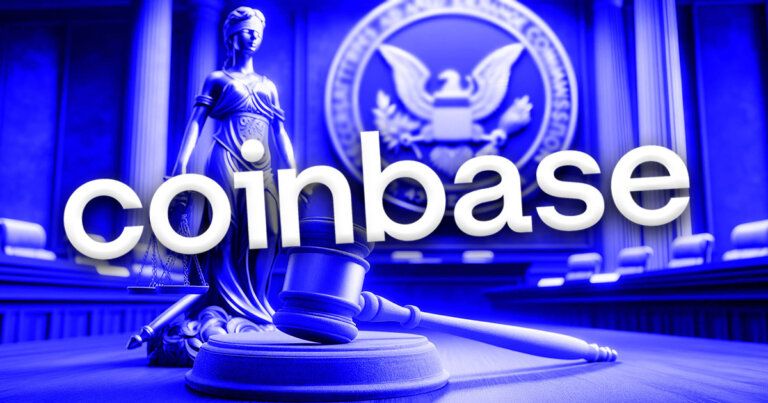 Coinbase slams SEC in closing brief over refusal to provide clear regulation
Coinbase slams SEC in closing brief over refusal to provide clear regulation Coinbase slams SEC in closing brief over refusal to provide clear regulation
Coinbase filed its closing brief on May 31, slamming the SEC for its refusal to provide regulatory clarity for the digital asset industry.

Cover art/illustration via CryptoSlate. Image includes combined content which may include AI-generated content.
Coinbase filed a closing brief with the US Court of Appeals for the Third Circuit on May 31, challenging the SEC’s denial of its rulemaking petition.
The case revolves around a single, conclusory sentence in the SEC’s order, which “disagreed” with Coinbase’s assertion that current SEC rules are unworkable for digital asset firms.
The exchange argues that this lack of reasoned decision-making should result in vacating the regulator’s order. Additionally, Coinbase wants the court to mandate the SEC to engage in rulemaking for the crypto industry.
Coinbase Chief Legal Officer Paul Grewal emphasized the importance of this legal battle on social media and criticized the SEC for offering no substantive reasoning behind its disagreement. He said:
“The SEC’s order must be vacated on this elementary ground alone.”
Grewal highlighted the broader implications of the SEC’s stance, asserting that the SEC is overreaching its jurisdiction without clear authorization from Congress and without establishing clear rules for the burgeoning digital asset industry.
Refusal to provide rules
Grewal also expressed concerns about the SEC’s approach, accusing the agency of attempting to stifle the digital asset industry. He said:
“The SEC is bent on choking the digital asset industry and is refusing to provide the necessary rules the industry has requested in order to tighten the squeeze.”
This sentiment is echoed in Coinbase’s legal brief, which argues that the SEC’s actions are part of a deliberate effort to destroy an industry by enforcing compliance with unworkable regulations.
The brief filed by Coinbase contends that the SEC’s failure to engage in proper rulemaking violates the Administrative Procedure Act (APA), which requires agencies to engage in rulemaking for major policy changes.
Coinbase argues that the SEC’s policies on digital assets have been inconsistent and lack a coherent legal standard, making compliance impossible for industry participants. The brief states:
“The SEC’s position has radically and continually changed, creating uncertainty and confusion.”
The filing also highlights the agency’s contradictory statements over the years and its aggressive enforcement actions, which have targeted only a subset of digital assets without clear guidance.
Untenable situation
Coinbase’s legal team argued that the SEC must engage in rulemaking to establish clear and workable standards for digital asset firms.
The brief points out that the SEC’s current stance effectively renders the entire digital asset industry non-compliant with existing rules, a situation that is “untenable and unfair.”
The case has drawn significant attention from the crypto community and regulatory observers, as it could have far-reaching implications for the regulation of digital assets in the US.
Coinbase’s challenge illustrates the ongoing tension between the digital assets industry and regulatory bodies as the industry seeks clarity and fair treatment under the law.
The Third Circuit’s decision on this matter will be closely watched, as it has the potential to shape the future of digital asset regulation and determine the extent of the SEC’s authority over the industry.













































































































